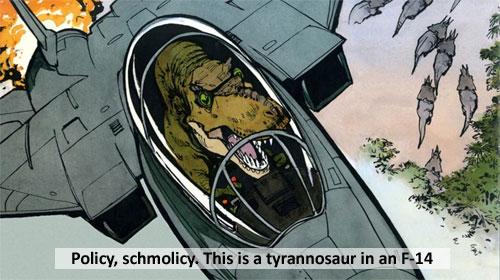
image Bill Waterson
Ed Yong, responding to a run of recent rumination about the nature and role of science journalism, ponders the value of the "This is cool" science story:
None of this is intended to suggest that "this-is-cool" stories are somehow superior to those explaining the interaction between science, policy and society, or what David Dobbs calls the "smells funny" stories. They are simply the stories that I prefer to tell. Individual journalists can specialise in one or more of these areas but across the science writing population, we ultimately need a mix of approaches.
Two points:
1. Since I coined the "this is cool" versus "This smells funny" distinction at ScienceOnline, I now propose to rephrase it: I think "Nifty" versus "Fishy" sounds better.
2. Ed's right. The Nifty stories -- stories about good science producing cool results -- generate enthusiasm and appreciation about science.
More important, they teach, osmotically, the value and nature of empiricism, which is the foundation of a rational, secular, democractic society. Why? Because empiricism is about elevating evidence -- evidence that's subject to testing through open, transparent discussion -- above the acceptance of the authority of the authorities. It is no coincidence that the scientific revolution got seriously underway (Copernicus, Morgagni, that rabble) around the same time that Bacon challenged the church by insisting that the text of the Bible (the evidence, as it were) was the more reliable source of truth than the church's rulings. No coincidence that democracy soon started busting out all over. And no coincidence that some of those who want a less democractic, secular society now are trying to shut Thomas Jefferson out of our schoolbooks.
So heck yes the Nifty stories are cool, and we need them. But only (as Ed well recognizes) if we do our best to make sure they're really not the Fishy ones covered in perfume to hide the smell.
Which is why we need both, and the wisdom to tell the difference.

 I write
I write 
